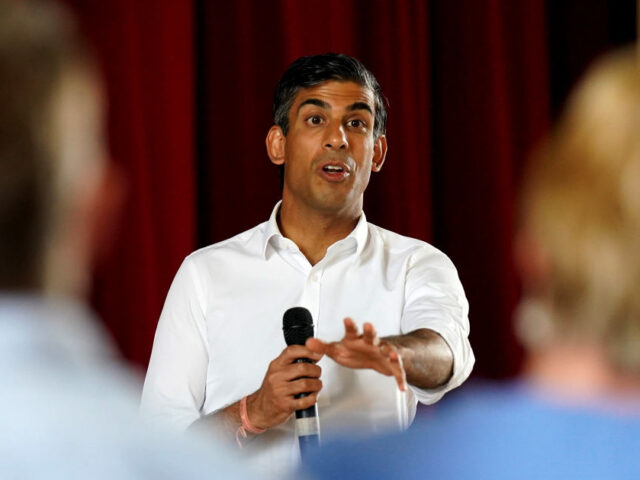One day after Prime Minister Rishi Sunak stood on the steps of Downing Street to reaffirm his commitment to the 2019 Conservative Manifesto upon which the current government was elected, Foreign Secretary James Cleverly admitted that they may have to backtrack on key pledges in areas such as taxation and migration.
In his first address to the nation on Tuesday, Prime Minister Rishi Sunak, who was installed, it seems, against the wishes of the Conservative Party membership by MPs, used the 2019 election Tory manifesto as a justification for his rule and why a general election was not necessary.
“The mandate my party earned in 2019 is not the sole property of any one individual,” Sunak said in reference to Boris Johnson, who was the leader during the election win. “It is a mandate that belongs to and unites all of us. And the heart of that mandate is our manifesto. I will deliver on its promise.”
Yet, while Mr Sunak is apparently content to fulfil some areas of the manifesto, such as the ban on fracking to fall in line with his green agenda proclivities, the newly installed government may discard other pledges as it suits him, despite him making an appeal to the integrity of the manifesto to not have a fresh election.
Appearing on Sky News on Wednesday morning, Foreign Secretary James Cleverly, said: “You can’t set out a manifesto and assume that nothing significant is going to happen in the four or five years of a parliament.”
“There was no global pandemic in the 2019 manifesto. There was no invasion of Ukraine in the 2019 manifesto,” the foreign secretary continued. “We have got to respond to the world as we find it, not the one we wish it to be.”
Although Sunak signalled out immigration as one of the agenda items from the manifesto, which vowed to reduce the number of immigrants coming to the UK, Mr Cleverly pointed hinted that this is likely not to come to pass. He said that while the government will seek to “control migration” it will not “turn the tap off to talent,” adding: “You always have to make dynamic decisions in government.”
Ahead of the 2019 general election, the Conservatives promised that “overall numbers will come down” in terms of legal immigration through the introduction of a points-based system supposedly crafted to resemble the Australian model. However, unlike the Australian system, there was no hard cap placed on the number of migrants allowed into the country per year, which has so far resulted in an increase in migration, not less.
Reinstated Home Secretary Suella Braverman has been open about her desire to reduce net immigration to the “tens of thousands” as was previously promised by the party. However, Cleverly’s comments may hint that Sunak’s globalist government will fall in line with statements from David Cameron’s right-hand man and former finance minister George Osbourne, who admitted in 2017 that despite public promises to voters, the party never actually had any intention of cutting immigration.
Mr Cleverly also suggested that the high-tax regime instituted by Sunak during his tenure as Boris Johnson’s chancellor will only continue as well, saying of potential tax increases and spending cuts: “We have got to respond to the world as we find it, not the one we wish it to be.”
In 2019, the Tories also promised that they would not raise taxes, saying that the party wants to “give you freedom – low taxes, opportunity, the chance to realise your dreams.” Yet, despite supposedly being the party of smaller government, during their decade-plus reign, they have raised taxes on over 1,000 occasions. Under Sunak’s reign as the top man at the treasury, the Tories increased the tax burden on the British public to the highest level since the 1950s.
Though it appears that Mr Sunak may not live up to the supposed “mandate” of the election manifesto on taxes or migration, Downing Street announced on Wednesday that the government has scrapped plans from Liz Truss to end the moratorium on fracking. In their manifesto, the Tories said: “We will not support fracking unless the science shows categorically that it can be done safely.”
There has been a moratorium placed on the industry in England since 2019 over claims of earthquake tremors associated with drilling. A four-year study conducted by the University of Newcastle revealed this year that such concerns have been overblown, particularly in light of the UK’s specific geology, with the researchers stating that while seismic activity will increase — as it did during heavy coal mining periods — the actual impact on the surrounding areas would be minimal.
Nevertheless, Sunak, who has been a champion of the globalist green movement, decided that the ban on fracking should continue, no matter the impact on the ever-growing energy crisis across Europe and Britain.
Follow Kurt Zindulka on Twitter here @KurtZindulka

COMMENTS
Please let us know if you're having issues with commenting.